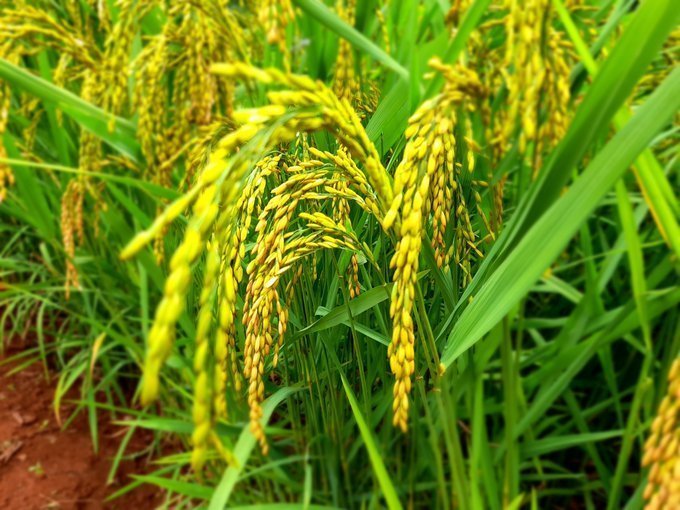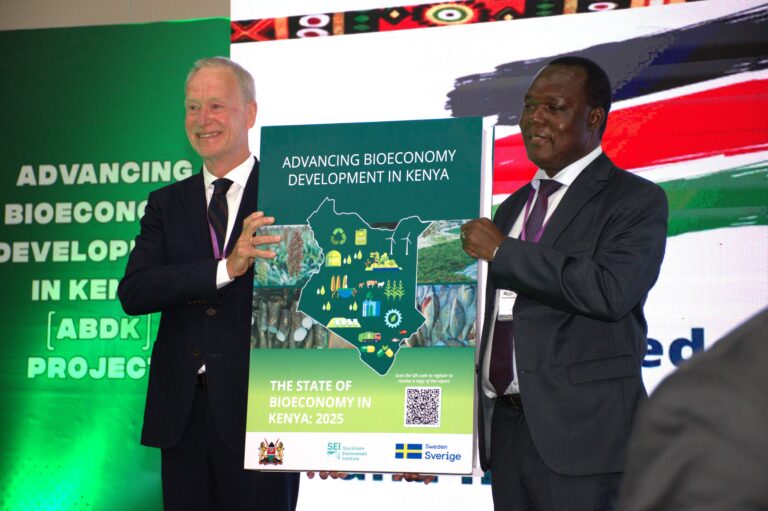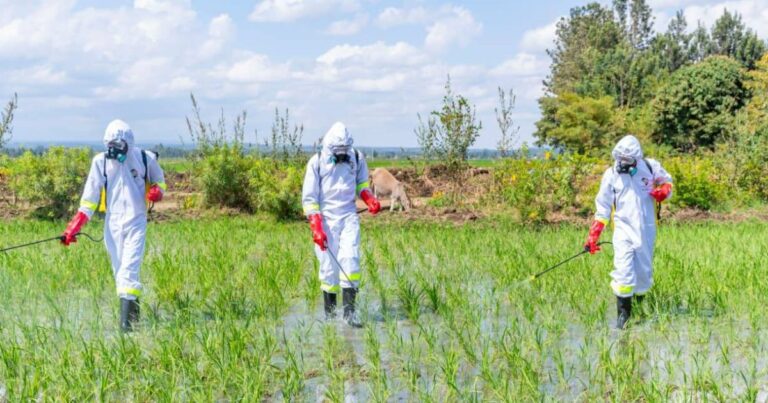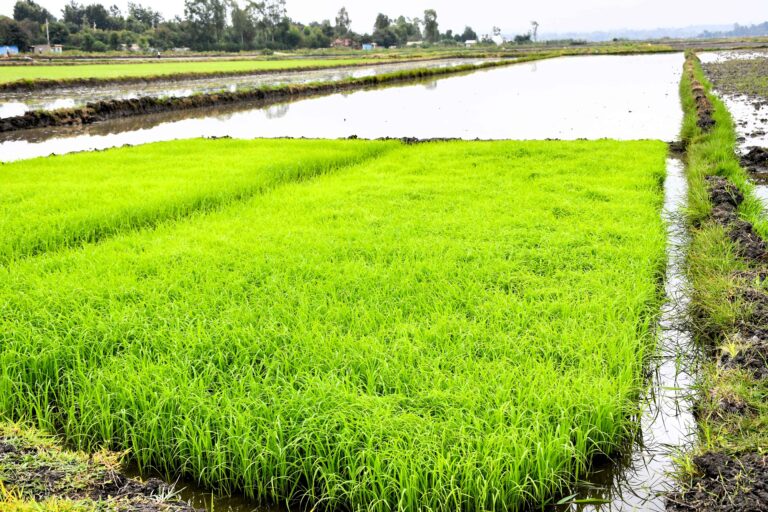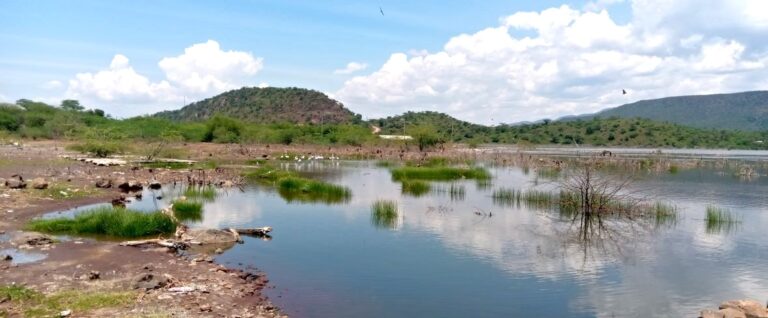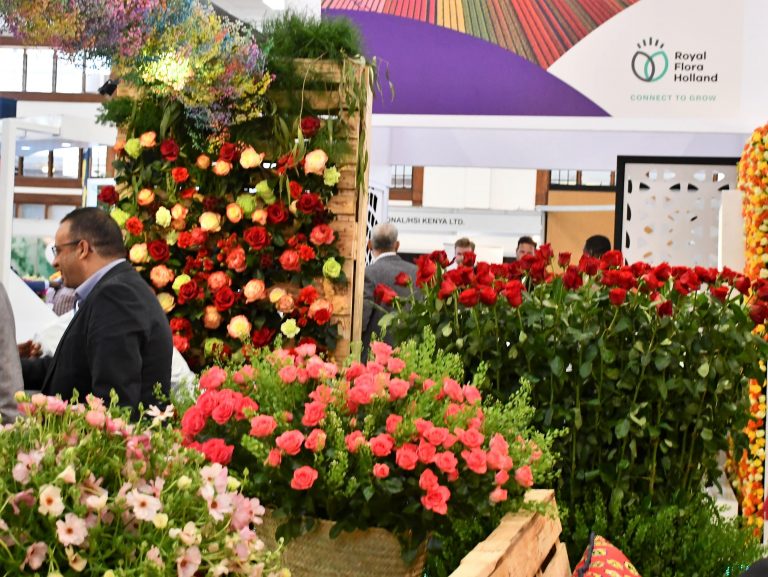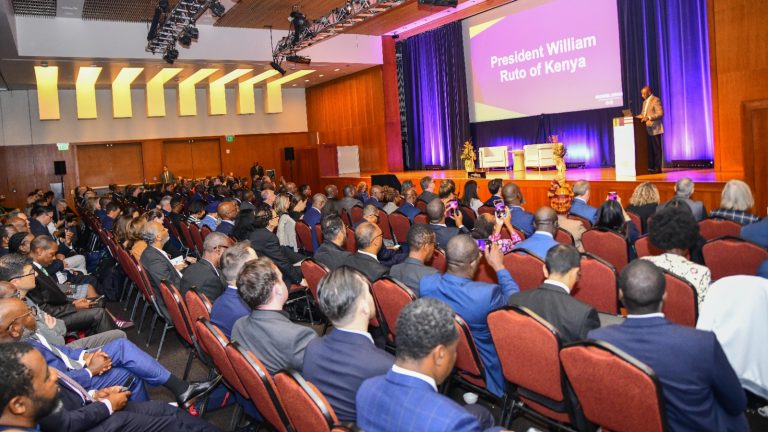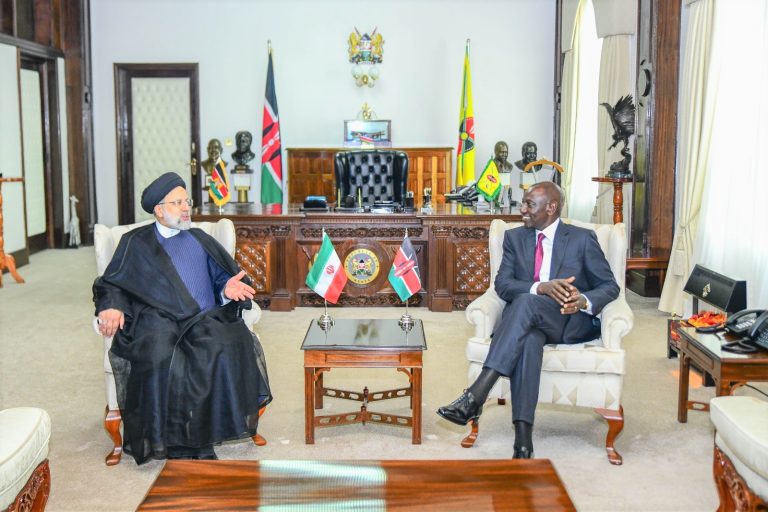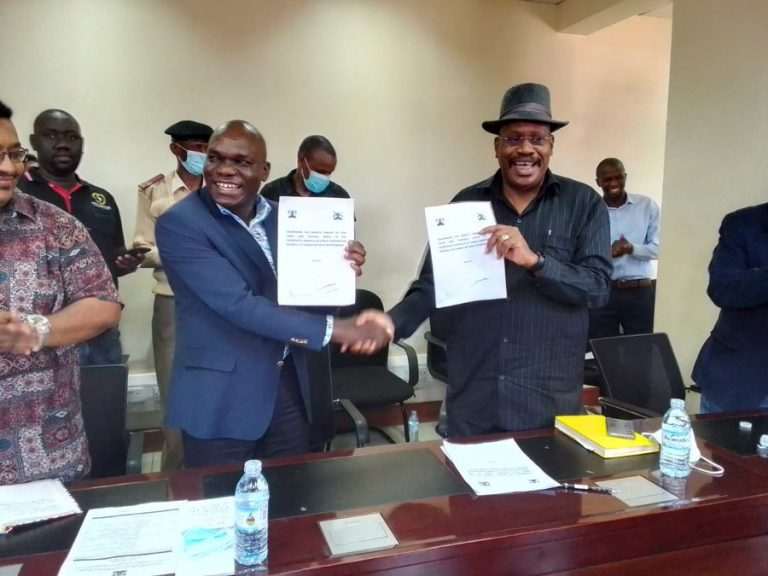In Kenya, rice demand has been growing over the years. In 2019, Kenya imported rice worth Kshs.25 Billion. The annual rice consumption is also increasing at a rate of 12% compared to wheat at 4% and maize which is the main staple food at 1%. Previously regarded as an orphan crop, rice finally got attention from the government keen on promoting it as supplementary food to maize. Apart from declaring rice as an important crop, the government declared rice an important crop to supplement maize and in 2008 launched the Kenya National Rice Development Strategy (KNRDS) 2008-2018 to double rice production in the country.
The attention from the government and the increased demand has also raised interest from farmers keen to increase their production. Dan Odhiambo from Kano Irrigation Scheme who inherited his rice farm from his father notes that yields over the years, the yields have been on a decline. He says an acre used to produce 60-70 bags while today he harvests less than half per acre.
The increase in rice intensification is expected to put pressure on the environment owing to the high demand for water and fertilizers that the crop requires. Anthony Mugambi, the Kenya County Team Leader – Kilimo Trust a not-for-profit organization working on agriculture notes the amount of pressure rice production puts on the environment and the ripple effect that this has on climate change due to the greenhouse gases that are produced in the rice fields particularly methane and other greenhouse gases.
The organization has embarked on a project to help rice farmers in Mwea and Ahero Irrigation Schemes by introducing regenerative agriculture through sustainable rice cultivation, encouraging rotational cropping with leguminous species, and managing crop waste streams such as rice husks and rice straws. This has been made possible through partnerships with various stakeholders that range from Cooperative societies, the Private sector and institutions of higher learning. The project dubbed Reduce- Re-use- Recycle Rice initiative for climate Smart Agriculture R4ICSA is a 2 years pilot project (2020-2022) funded by IKEA Foundation.
Prof. Paul Kimurto of Egerton University says research conducted showed that Mwea is more advanced in marketing and orientation of farmers to innovations in the value chain. There are many rice mills in Mwea as compared to Ahero. However, production is higher in Ahero which he attributes to the agricultural practices in Ahero where farmers practice crop rotation hence giving the soil time to recover, in comparison to Mwea, where farmers continuously irrigate and do not allow the soil to breathe. This he says doesn’t allow micro-organisms to thrive well because there is no oxygen for nine months in a year.
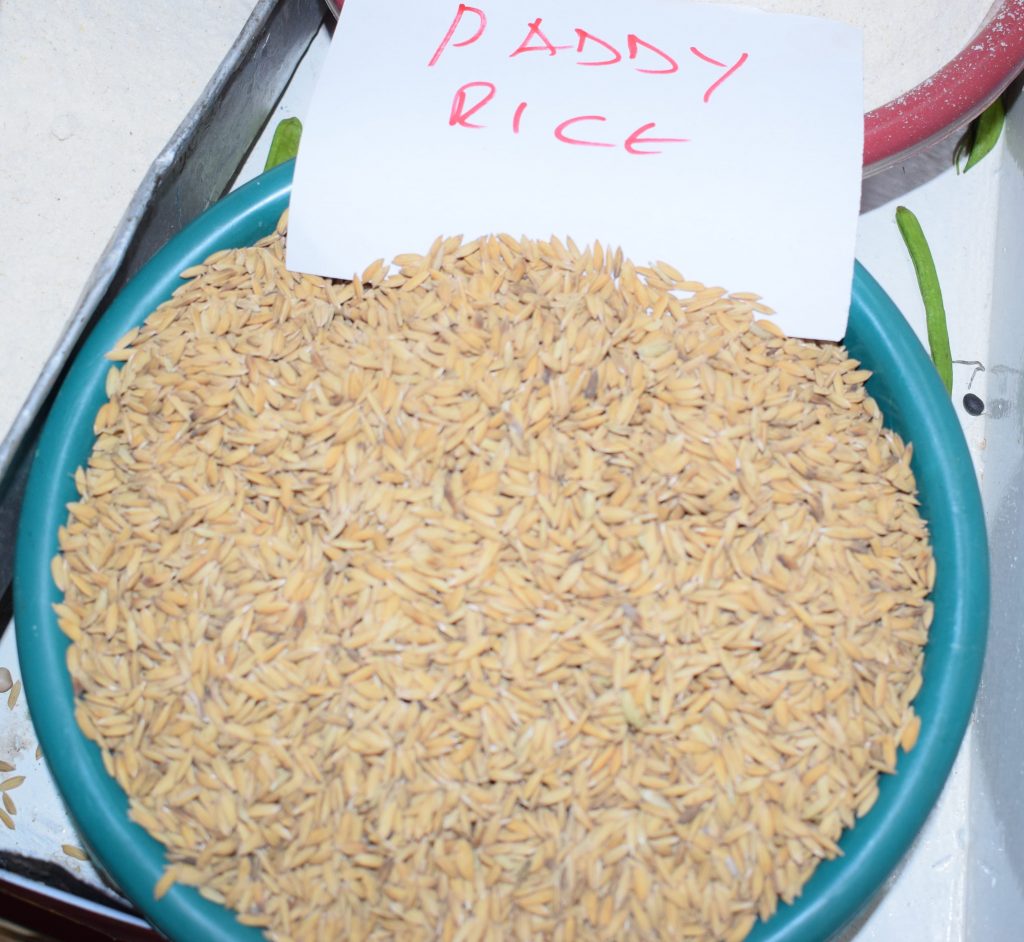
In Ahero, farmers produce one crop and an additional mini crop for the rest of the period. Farmers are embracing crop rotation by planting leguminous crops like green grams which are good in nitrogen fixation. This also comes as an advantage to the farmer as the legumes are another source of income, supplementing rice. This in return improves the nutrient content. The soil organic matter and the overall production system is better in Ahero in comparison to Mwea.
For many farmers, on harvesting rice, they either burn the straws, feed their livestock or sell them to dairy farmers, despite their low nutrition value. The challenge with rice straws is that they contain silica which takes much longer to decompose. The project is addressing this by teaming up with Egerton University to pilot vermicomposting where red worms are used to break down the straws into organic manure and vermi-liquid which farmers can use or sell.
Another concern in rice farming is the overuse of fertilizer in the rice fields. Farmers often apply nitrogenous fertilizer which is found in granule form in the market using the broadcasting method. It was found out that the cost of applying and the amount of fertilizer applied is too high. The project has introduced Urea Deep Placement (UDP) where the urea fertilizer is compressed into pellets that are applied deep into the soil. This ensures that the nutrients are slowly released into the soil and better utilized than broadcasting the fertilizer, which ends up being washed downstream when the water is released from the paddies. Kilimo Trust says using UDP has increased farmer’s production by 30%.
On harvesting and milling, rice husks are another nuisance to rice millers due to their bulkiness. Peter Rachuonyo the Production Manager at Western Kenya Rice Mill says in a month they mill about 8,000 kilograms of rice out of which 800 kilograms are rice husks. Many millers preferred burning them. This is changing with the discovery of various uses for the husks. Fabrication of stoves that use the husks, carbonation of the husks to make organic fertilizer and making rich organic material for tree nurseries are some of the interventions being used to make them useful. Awareness has ensured that some women have adopted using the rice husks stoves since they get the husks free from the rice mill compared to buying firewood.
In Mwea, Kilimo Trust has partnered with Mwea Rice Growers Multipurpose Cooperative Society (MRGM) to work with farmers and entrepreneurs along the value chain. Michael Mwangi an agronomist at MRGM noted that with a production of two hundred and fifty metric tonnes of rice, 10% of that bulk is rice husks which have the challenge to manage. ‘’We were burning the rice husks, which was not good for the environment as we could not burn it all up. After partnering with Kilimo Trust, we have come to learn that there are more uses for rice husks. Currently, we are supporting entrepreneurs who are adding value to the rice husks by making biochar and organic fertilizer which is highly sought after.”
Kilimo Trust connected Waweru and his team of young men at Mwea Carbonators with Mwea Rice Growers Multipurpose Cooperative Society where they get rice husks then carbonate them to make biochar (charcoal produced from plant matter and stored in the soil as a means of removing carbon dioxide from the atmosphere). Waweru says initially they used to go for 500 bags of rice husks but with the linkage, they now go for 1000 bags. Kilimo Trust also supported Mwea Carbonators in developing a business plan and registering their business. This has helped them to streamline their operations. In addition, Kilimo Trust has linked them to Safi Organics, a firm that produces organic fertilizer that is highly sought after.
As all these interventions take shape, cross-learning opportunities will be critical to scaling up and transforming rice farming to become more sustainable by reducing greenhouse gas emissions and the sub-sectors contribution to climate change, given its important role in addressing food, nutrition security and improved incomes for all value-chain actors.
To find out more about the 4RiCSA project by Kilimo Trust, visit their website, www.kilimotrust.org


